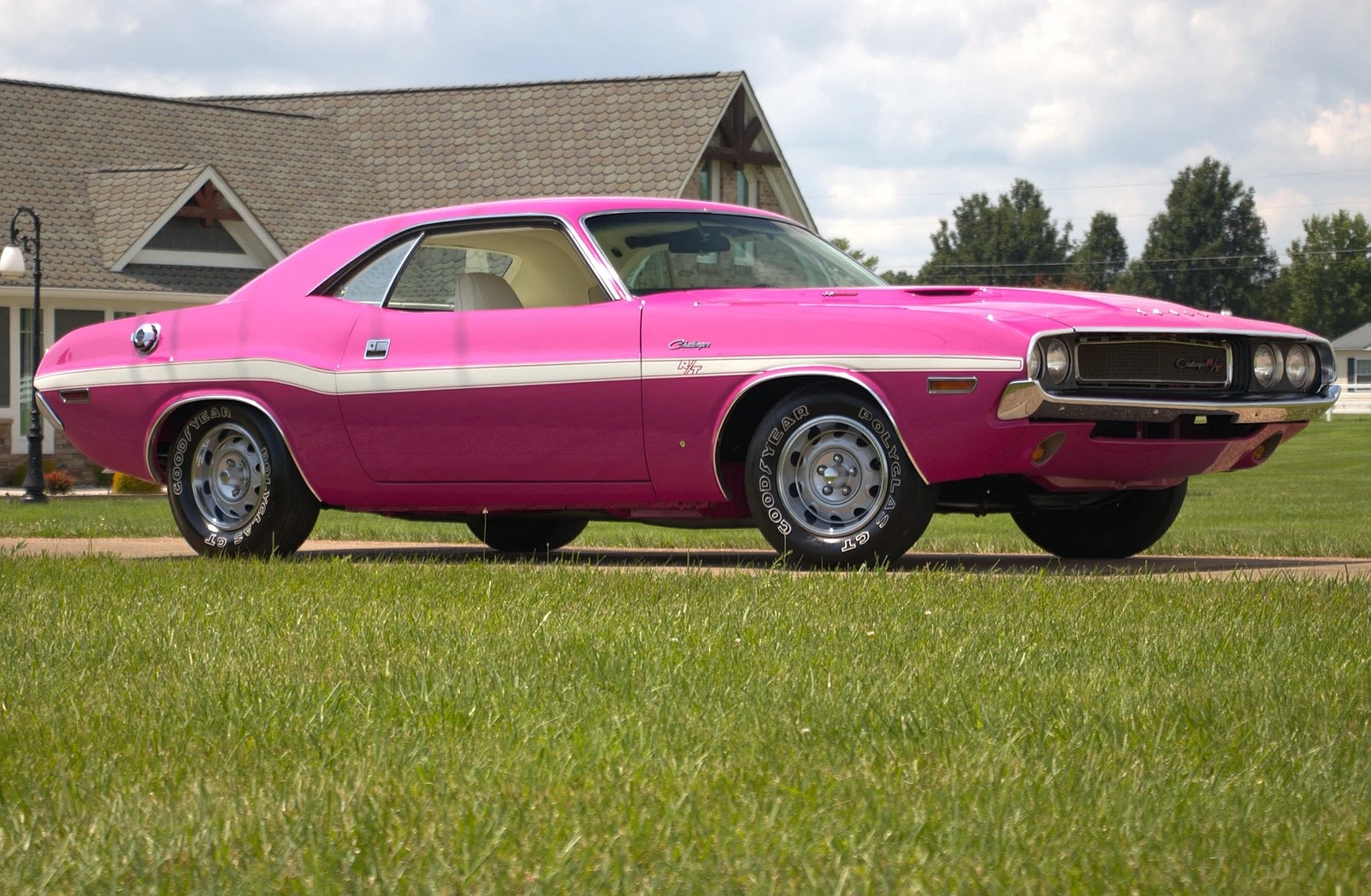What’s your favorite thing about late-1960s and early-1970s Mopar muscle cars? I’m guessing the 426 HEMI V8 is the most popular answer, and I totally get it. That big lump is both powerful and rare, not to mention sexy to look at. But I have to go with the Hi-Impact color palette. Because it’s what made all the cool Dodges and Plymouths stand out.
The first Hi-Impact hues became available in 1969. The list included colors like Go Mango, Butterscotch, and Hemi Orange. Plymouth called them Vitamin C, Bahama Yellow, and Tor Red, respectively. Chrysler also offered Bright Green/Rallye Green in 1969, but it was a Spring Color only. Its limited availability turned it into a desirable and rare hue.
The palette expanded to include the iconic Plum Crazy/In-Violet and Sublime/Lime Light in 1970. Dodge and Plymouth also added Green Go/Sassy Grass and Top Banana/Lemon Twist to the list. But none of them are as wild as Panther Pink/Moulin Rouge. I know some of you wouldn’t be caught dead in a pink Mopar, but I think muscle cars like the Dodge Challenger and Plymouth Cuda look dope in this so-called “girly color.” Especially when combined with a white stripe and interior, like this 1970 Challenger R/T.

Haven’t seen one in a very long time? Well, that sounds about right because Panther Pink Dodges are very rare. And that’s not only because muscle car enthusiasts had an issue with the color. The hue was also only available as a Spring Color in 1970. And only 340 customers got to order a pink 1970 Challenger before the eye-catching shade was discontinued. Only 321 were hardtops like this example here, and far fewer than that were ordered with the high-performance R/T package.
Add the white stripes, the white interior, and the 440-cubic-inch (7.2-liter) RB engine into the mix, and you get a super rare classic. Perhaps even a one-of-one gem. However, this 1970 Challenger R/T is a mysterious pony that hides a few secrets under the skin. For starters, the VIN suggests that the hardtop left the assembly plant with a 383-cubic-inch (6.3-liter) V8 under the hood. There’s no info as to why the original mill was replaced, but the 440 is clearly not a numbers-matching unit. And that’s bad news for diehard collectors. On top of that, 383 R/Ts are a bit more common at 9,067 units built (vs. 2,802 440 R/Ts).
The paint job is also a bit of a mystery. The ad says the car is “finished in FM3 Panther Pink” but doesn’t specify if the hue is factory correct. Additionally, the photo gallery doesn’t include pictures of the cowl tag, so it’s impossible to verify whether the car was commissioned with paint code FM3. If that were the case, we’d be looking at one of only 41 1970 Challenger R/Ts finished in this hue. For now, it’s a cool Mopar with an engine swap offered in a striking color combo.
